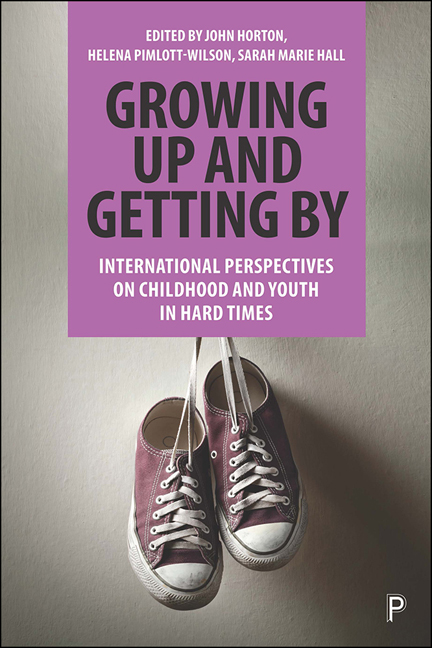4 - Sleepless in Seoul: understanding sleepless youth and their practices at 24-hour cafés through neoliberal governmentality
Published online by Cambridge University Press: 18 December 2021
Summary
Introduction
Sleeping in public is understood as taboo in South Korea, as in many other societies. Yet, it is likely tolerated and even sympathised with, if the sleeping person is a Korean youth napping in a café, the field of discussion in this chapter. Chronic fatigue in many South Koreans’ lives, and especially in youths’ lives, is an institutionalised phenomenon (Seo, 2019; Lee, 2019), specifically in contemporary Seoul where a highly competitive education system and increasing commuting times pressures youths into a certain time-economy and deprives them of sleep. In extreme cases, a traditional saying ‘4 dang 5 lak (四當五落)’ becomes doxa, which means that four hours of sleep will lead you to admission into a university (or any job that a person seeks) whereas five hours of sleep results in failing. The fallacious maxim has been authorised by different social and institutional apparatuses, mainly the media's and some educational service providers’ representations of legendary stories about well-known figures who slept as little as possible to succeed in their fields (Seo, 2019). Youths that I met at night-time cafés persistently mentioned this maxim when it came to ideal number of sleep hours. This anecdote epitomises how sleep habits involve local morals, although where and when to sleep is inevitably a product of an individual's agency.
Night-time sleep deprivation could also represent an individual's emotional status. As discussed later, the South Korean economy has been restructured in a way that is disproportionately detrimental to the younger generation (Woo and Park, 2006; Johan et al, 2016). The South Korean government's implementation of neoliberal doctrine, characterised as free-market competition, job flexibility, public service reduction and privatisation (Harvey, 2005), as well as increasing unemployment and job insecurity after the economic recession in 2008 have resulted in high levels of anxiety, depression and job-related stress among young adults (Standing, 2011). In this chapter, then, I suggest that South Korean young adults’ late-night dozing and working activities at cafés, in lieu of maintaining regular sleep schedules, embodies the entanglement between individuals and a certain milieu in which they negotiate their anxious lives. In so doing, I aim to demonstrate that ‘neoliberalism’ is not a given state that exists independently from the lives of young people; rather, it is mutually constituted and differentiated by the continuous agentic and corporeal reflection of individuals.
- Type
- Chapter
- Information
- Growing Up and Getting By , pp. 79 - 98Publisher: Bristol University PressPrint publication year: 2021



